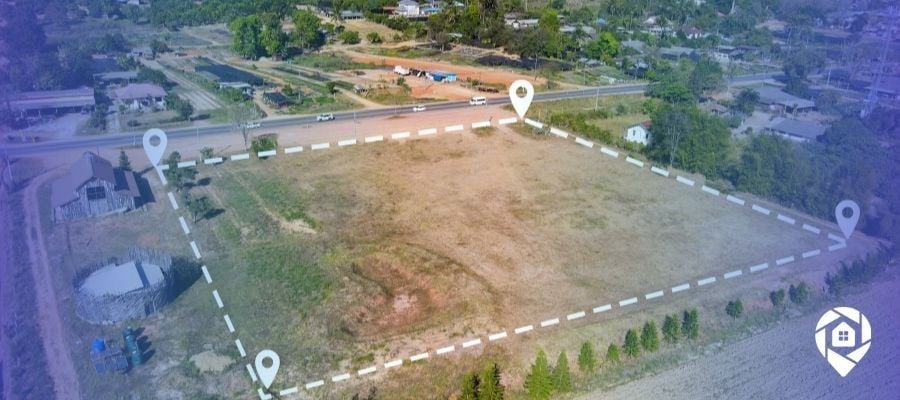
From $20K to 100 Flips a Year: Chris Burrow’s Atlanta Fix and Flip Journey

What does it take to succeed in Atlanta’s fix-and-flip real estate game?
Chris Burrow found out the hard way. In 2017, he was a struggling real estate agent making just $20,000 a year. With a family to support and credit cards maxed out, he needed a change and fast.
Today, he flips about 100 homes every year and owns 60 rental properties.
His journey from broke to booming didn’t happen overnight. It took smart systems, reliable people, and a fresh way of thinking about deals, contractors, and sales.
In this blog, you'll get an inside look at how he built his business from the ground up and the key lessons that helped him grow fast while staying profitable.
Watch the video below to hear the full story in his own words and see how he scaled from a struggling agent to a full-time Atlanta fix-and-flip investor.
Whether you’re just getting started or looking to scale your fix-and-flip business, his story is packed with insights you can use right now.
Transitioning from Wholesaling to Fix-and-Flip in Atlanta
What is a fix-and-flip business?
A fix-and-flip business involves buying undervalued properties, renovating them, and reselling them for profit.
Chris began in early 2018 after discovering wholesaling through YouTube and podcasts. With pressure mounting to provide for his wife and two children, he started knocking on doors of distressed properties.
His first wholesale deal earned $5,000, just enough to catch up on rent and credit card payments.
At first, his strategy worked well. But as marketing costs jumped from $5,000 to $15,000 per property, wholesaling alone wasn’t sustainable.
He noticed the investors he sold deals to were making significantly more on the back end.
That’s when he shifted to fix-and-flip investing in Atlanta, starting with smaller cosmetic renovations and slowly working his way up to full-scale projects.
How Systems and Teamwork Fueled His Growth
He didn’t scale his business by chance. He built it with structure.
His first hire was an office manager who’s now the company’s VP. She handles everything from:
- Transaction paperwork
- Asset management
- Deal underwriting
- Daily operations
The team also created a property grading system (A–F) tied to exit strategies. Alongside that, they developed flat renovation pricing to move faster on decisions:
- Full renovation (≤2,500 sq ft): $45,000
- Roof: $7,500
- HVAC: $7,500
This system allows their acquisition manager to evaluate deals quickly and make informed offers on-site, even without photos.
It’s one of the reasons their fix-and-flip process moves faster than most competitors in the Atlanta market.
How He Found the Right Contractor
How do Atlanta investors find reliable contractors?
By building long-term relationships, setting clear pricing, and choosing people who take ownership.
One of the toughest challenges in real estate is finding reliable contractors.
After a bad experience, the investor gave a chance to a hardworking crew member who showed initiative. That connection turned into a long-term partnership.
Today:
- That contractor runs 3 crews of 4 people
- Handles about two-thirds of the company’s renovation projects
- Uses square footage pricing to eliminate project-by-project negotiation
The key is trust and consistency.
“I know his family. I know all of his kids' names. I treat him the same or better than our employees.”
A Sales Strategy That Builds Trust
When it comes to sellers, he doesn’t pitch. He listens.
As a former agent, he knew how salesy the process could feel. Now, he uses techniques from Never Split the Difference to create conversations instead of pressure.
His key sales tactics include:
- Tactical empathy
- Anchoring offers
- Asking thoughtful questions instead of pushing deals
“If you’re talking, you’re losing.”
That approach helps his team close more off-market deals in Atlanta, even in competitive neighborhoods.
How He Navigates High Interest Rates
How do house flippers deal with high interest rates?
By running tight numbers and sticking to strict underwriting.
This investor isn’t worried about rates because his process is consistent.
“Interest rates are going to change. If you're underwriting your deals appropriately, the principles are the same.”
He analyzes every deal carefully. If it doesn’t meet his criteria, he walks away.
Why He Downsized and Focused on Profit
At one point, his company had 18 employees. But not all of them were pulling their weight.
So he made a bold move: cut the team down to 7 high-performers, the people doing 80% of the work.
The result was higher margins, less stress, and better results.
“Revenue is for vanity. Profit is for sanity.”
This lean team now focuses on profit-driven real estate investing in Atlanta, instead of just chasing growth.
Key Takeaways for Aspiring Atlanta Investors
Want to succeed in Atlanta's fix-and-flip market? Here’s what worked for him:
- Build systems you can scale
- Hire smart and train from within
- Create strong, respectful contractor partnerships
- Master the art of listening in sales
- Underwrite every deal with discipline
- Focus on profit, not just volume
FAQs
Q: How did he fund his first deal?
A: He used a $5,000 wholesale assignment to cover bills and reinvest in marketing.
Q: What makes his deal analysis fast?
A: A simple A–F property grading system and fixed-cost renovation estimates.
Q: How did he build a reliable contractor relationship?
A: He gave a motivated crew member a chance and built trust over time.
Q: What’s his seller negotiation style?
A: He listens, shows empathy, and uses anchoring to build trust.
Q: Why did he reduce his team?
A: To increase efficiency and focus on profit over unnecessary overhead.
Final Thoughts
Chris didn’t get lucky. He built his success by taking small, smart steps and sticking with what worked.
He listened more than he talked. He created systems to make decisions faster. He built a real estate team he could trust and didn’t chase growth just to look successful. He focused on profit first.
If you’re thinking about getting into real estate investing or want to grow your house flipping business, remember: you don’t need a huge budget or a big team to win.
What you need is a plan, persistence, and the patience to learn from every deal.
His story proves that with the right mindset and a solid process, real success is possible, even if you're starting from scratch.

About Maria Tresvalles
Maria Tresvalles is the dynamic Marketing Specialist at DealMachine, where she has been a key player for the past five years. With a strong background in customer relations, Maria started her journey at DealMachine as a Customer Success Coordinator, where she honed her skills in understanding customer needs and driving satisfaction.



